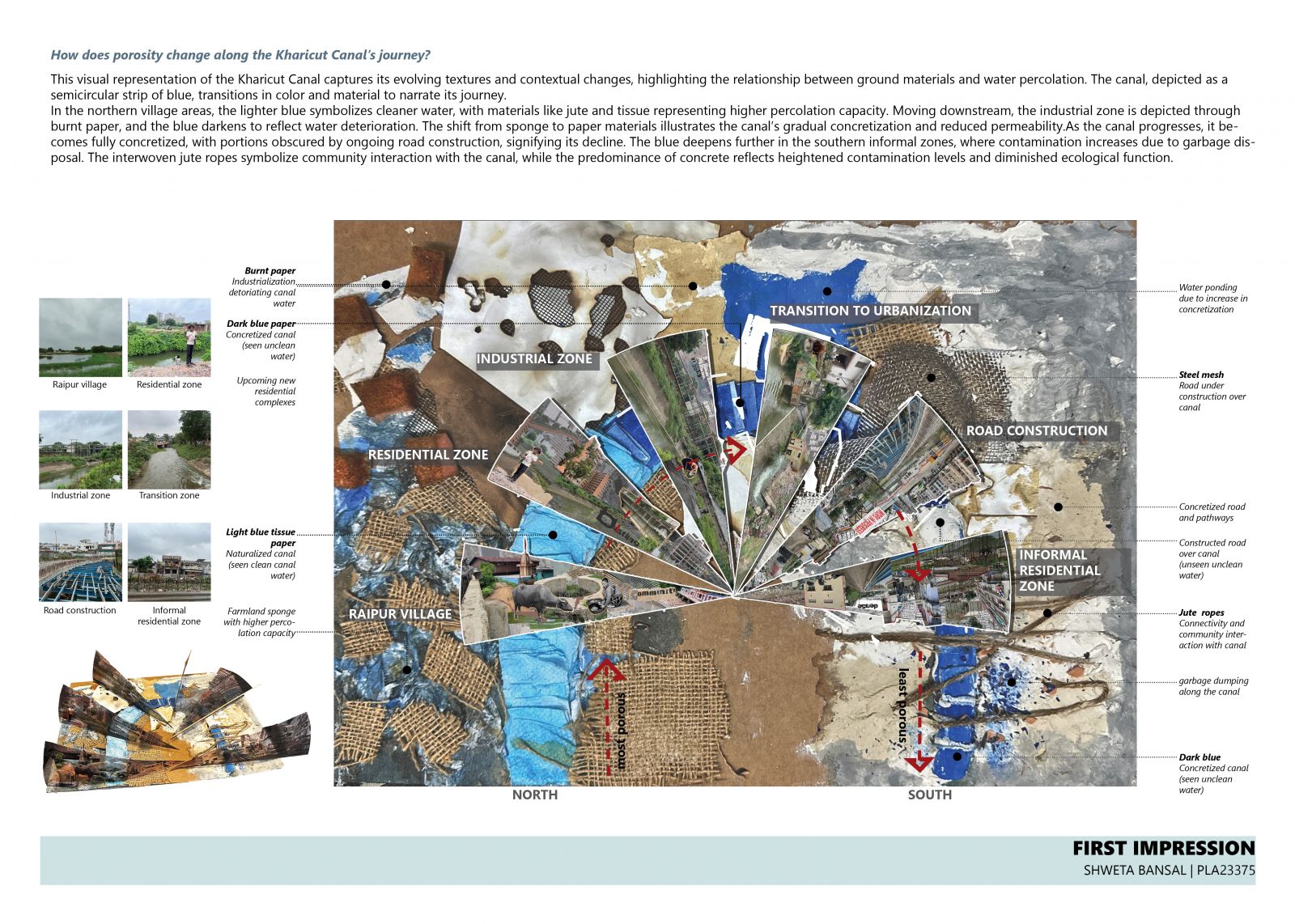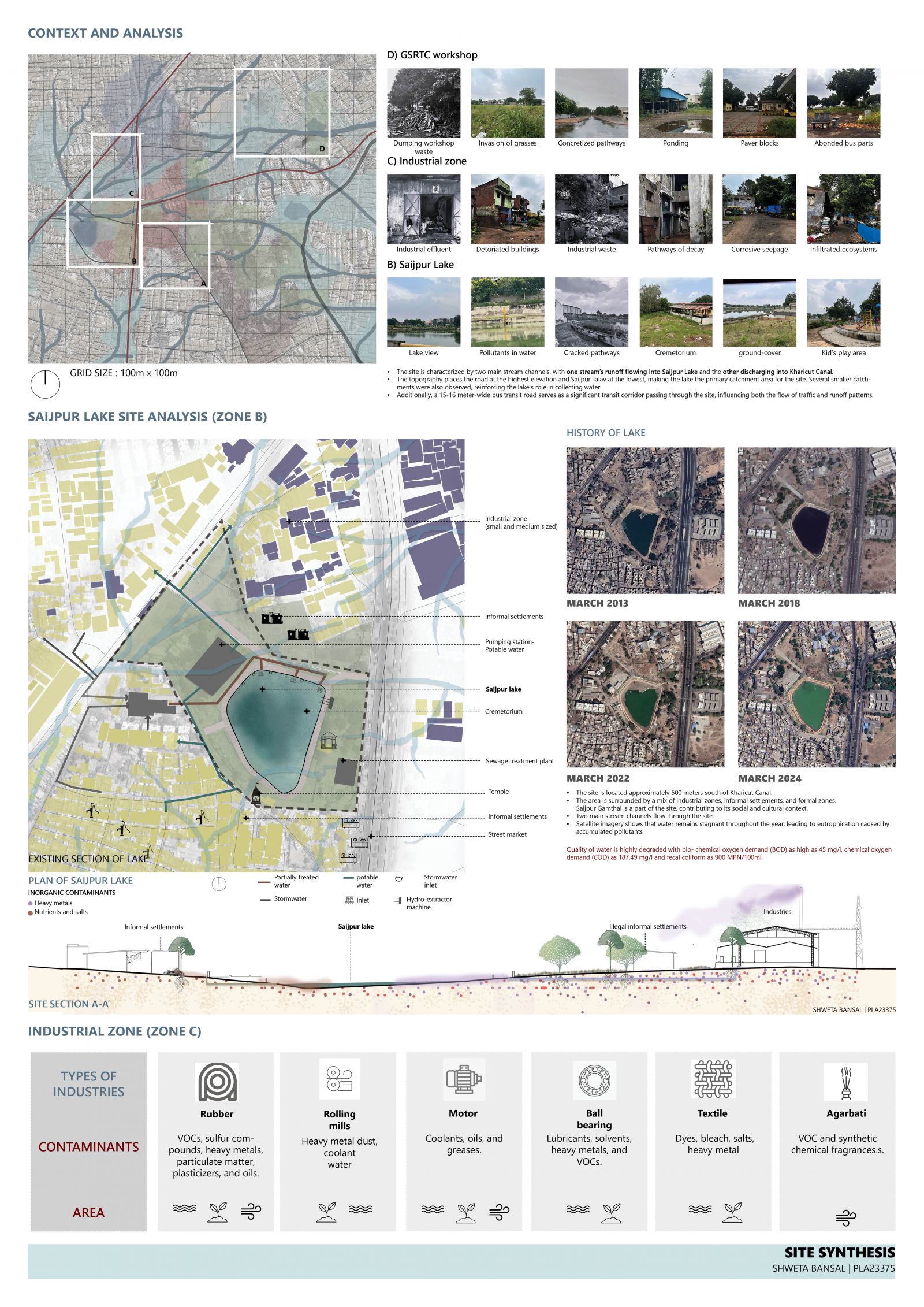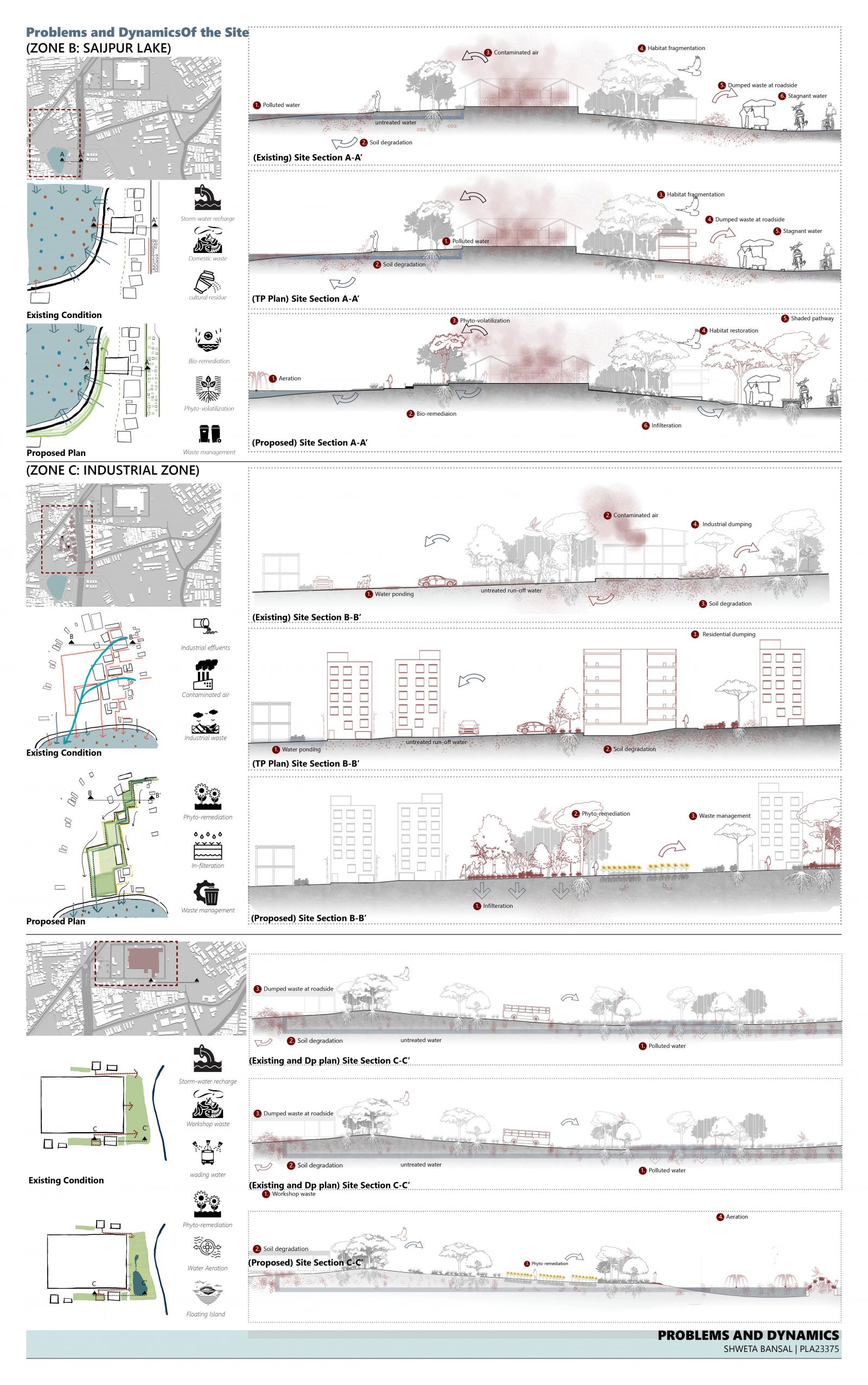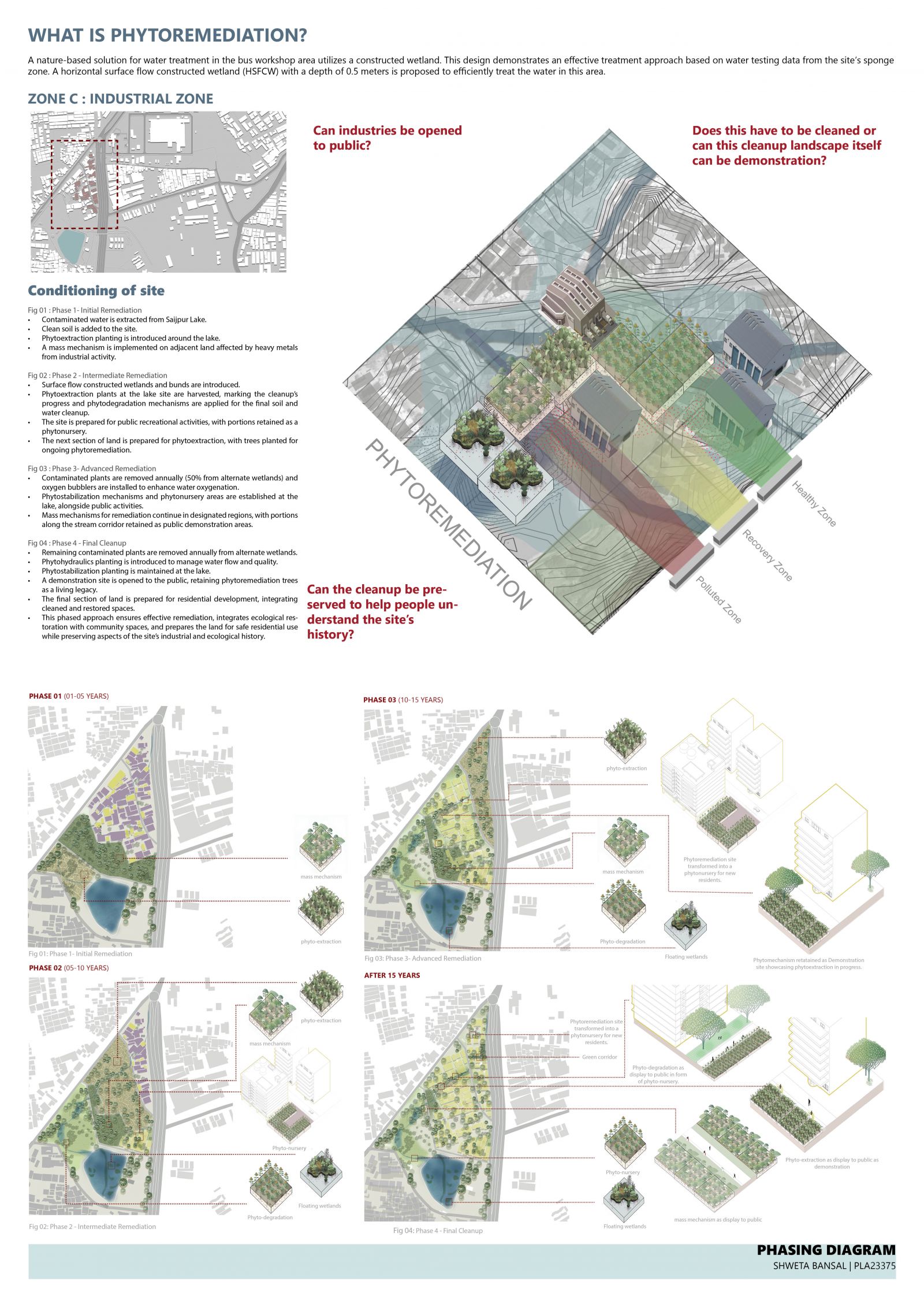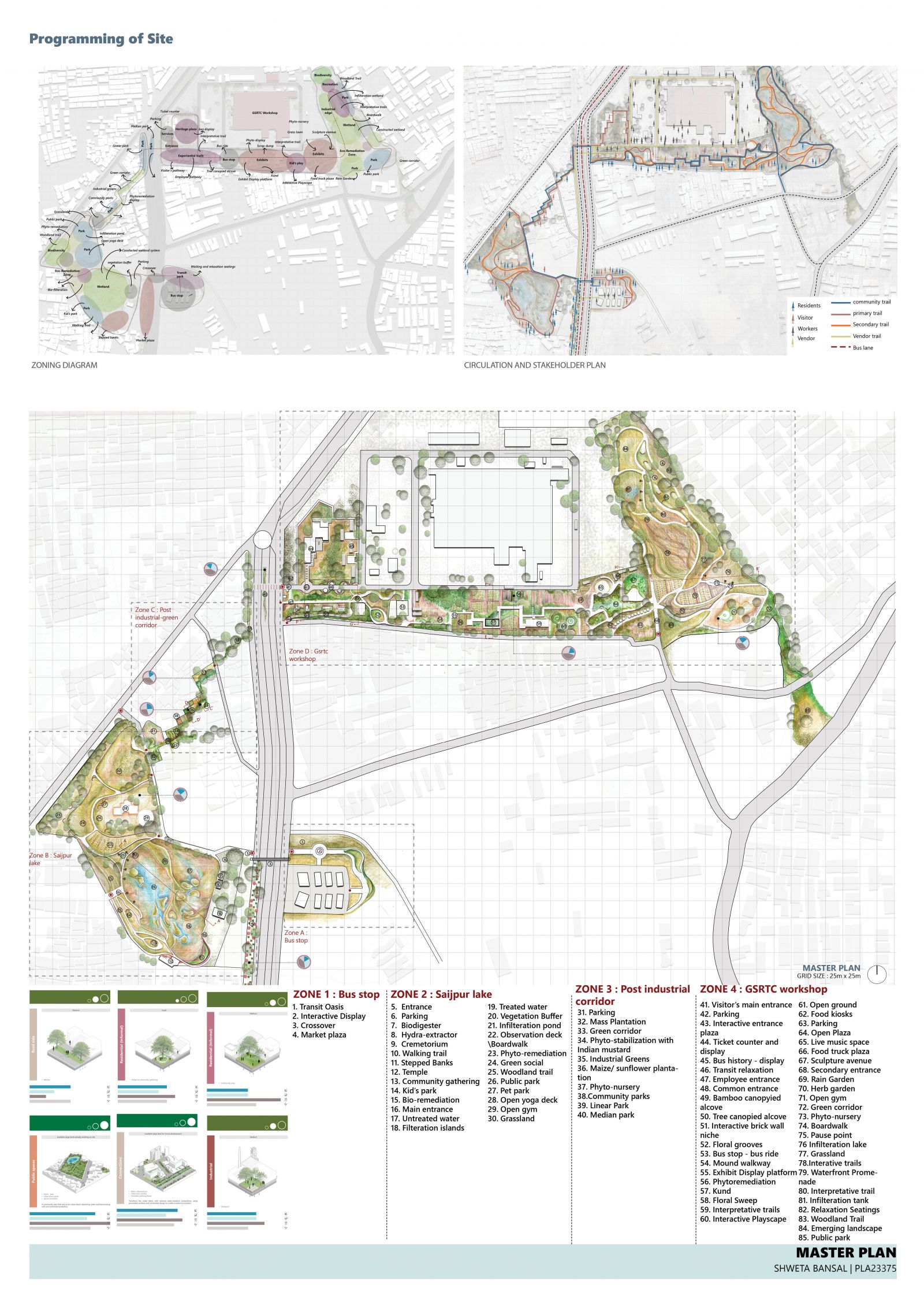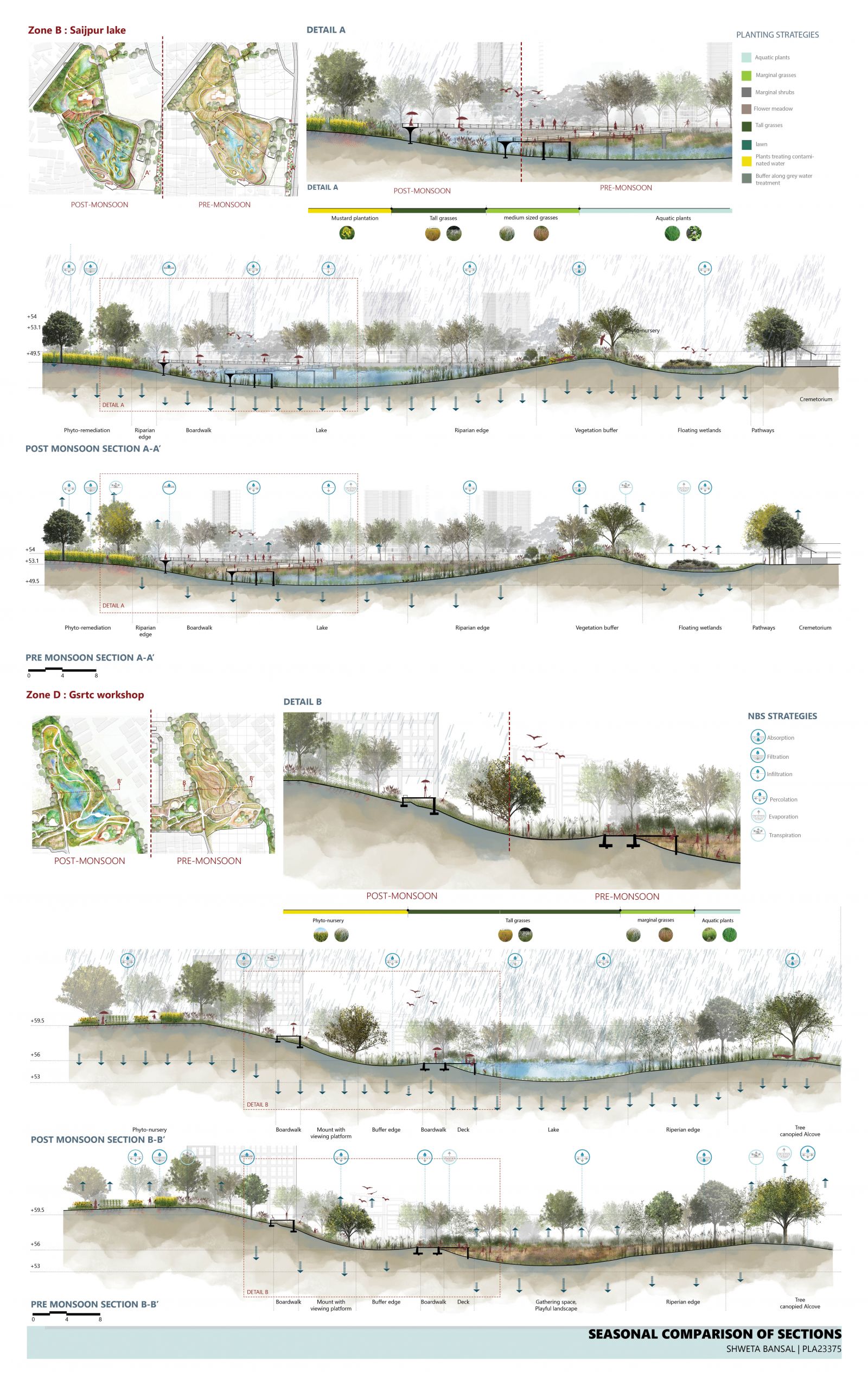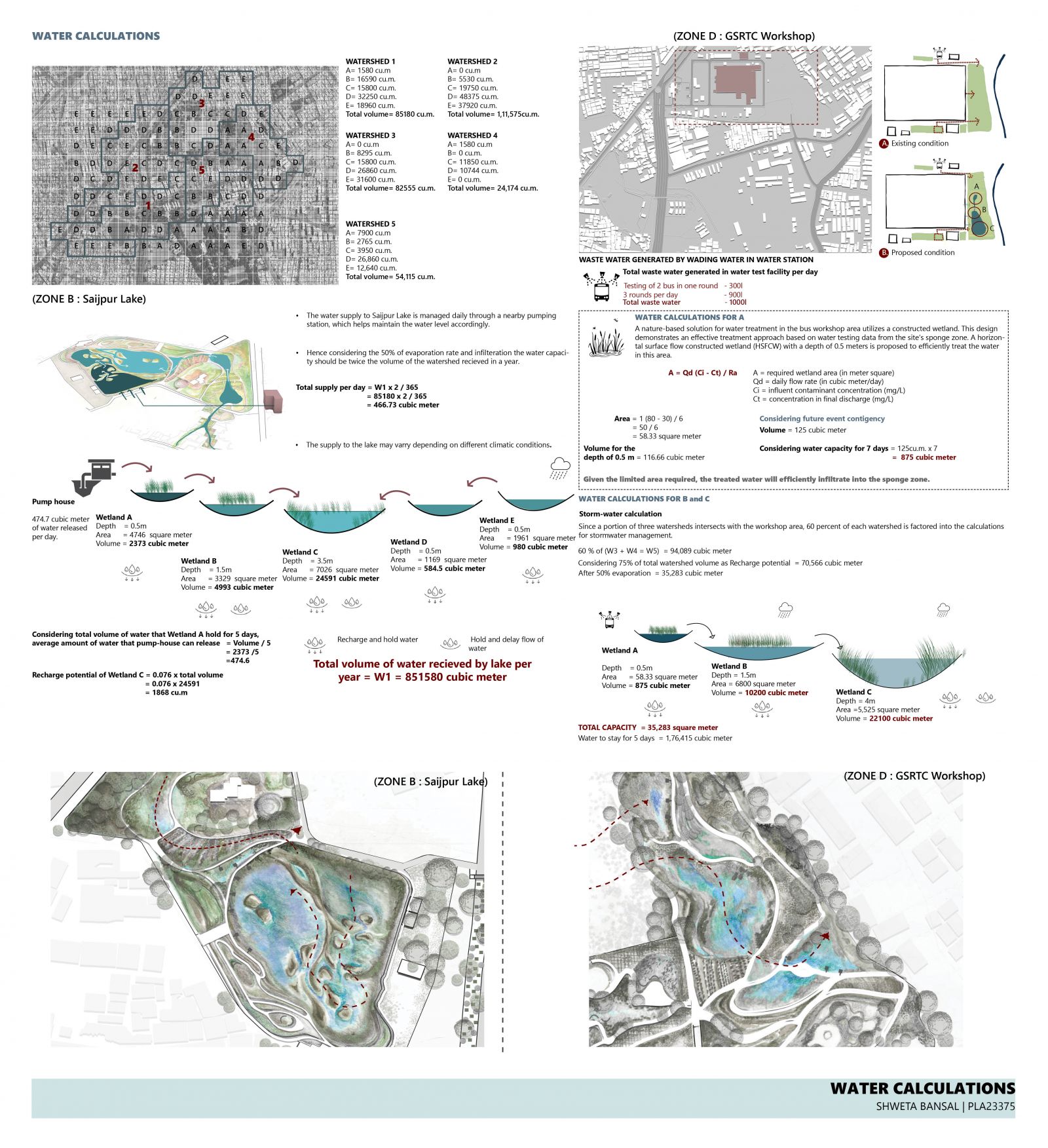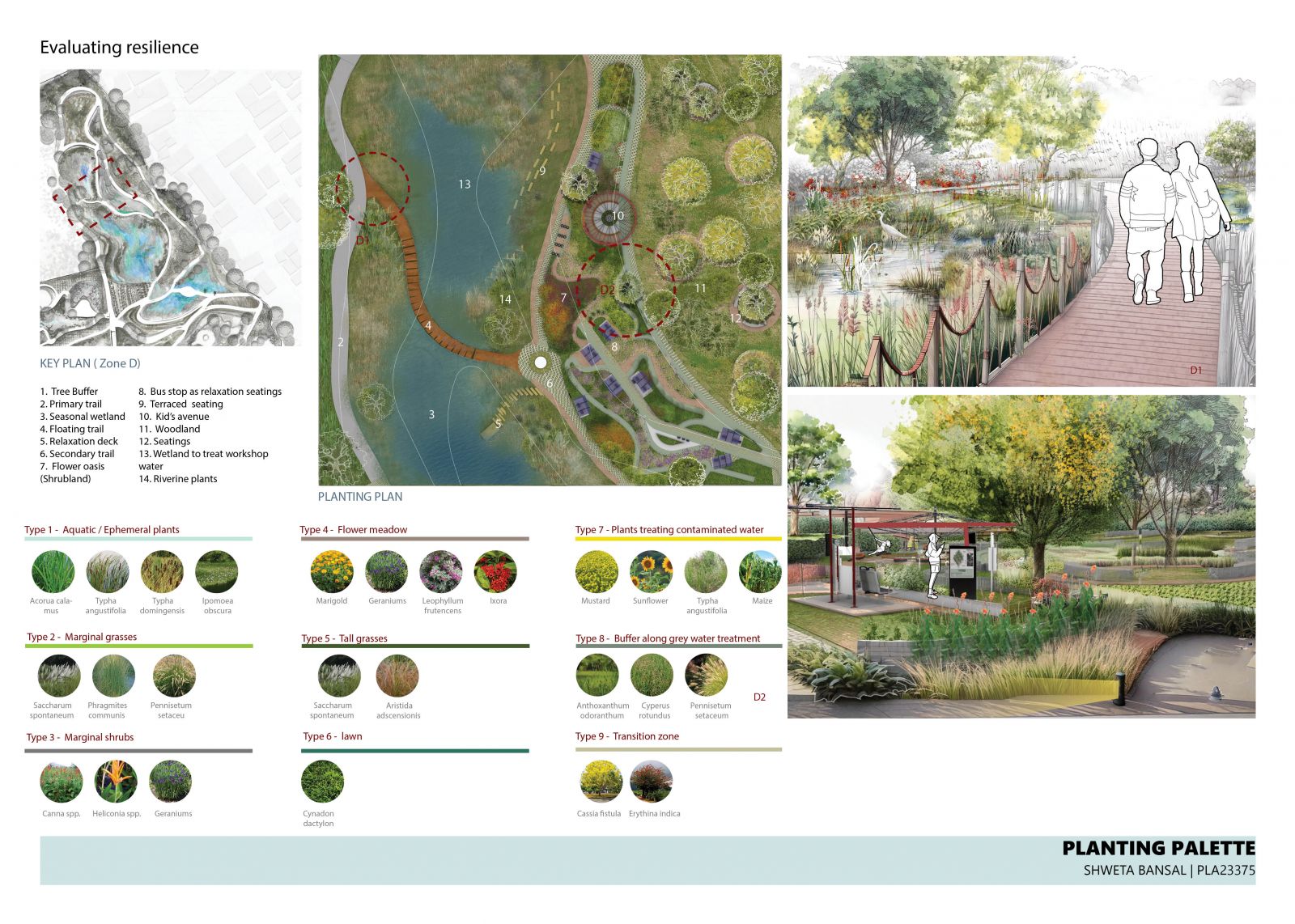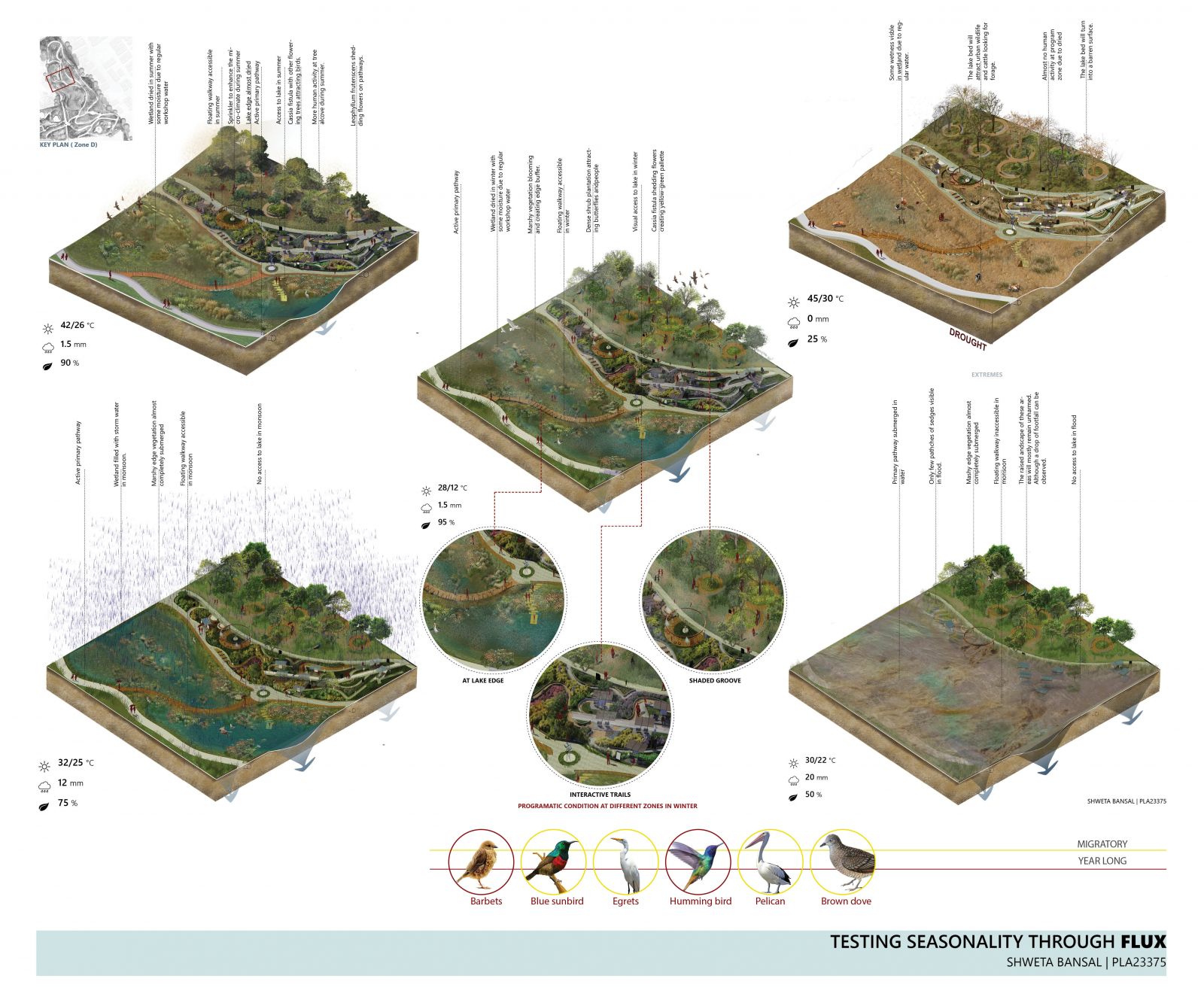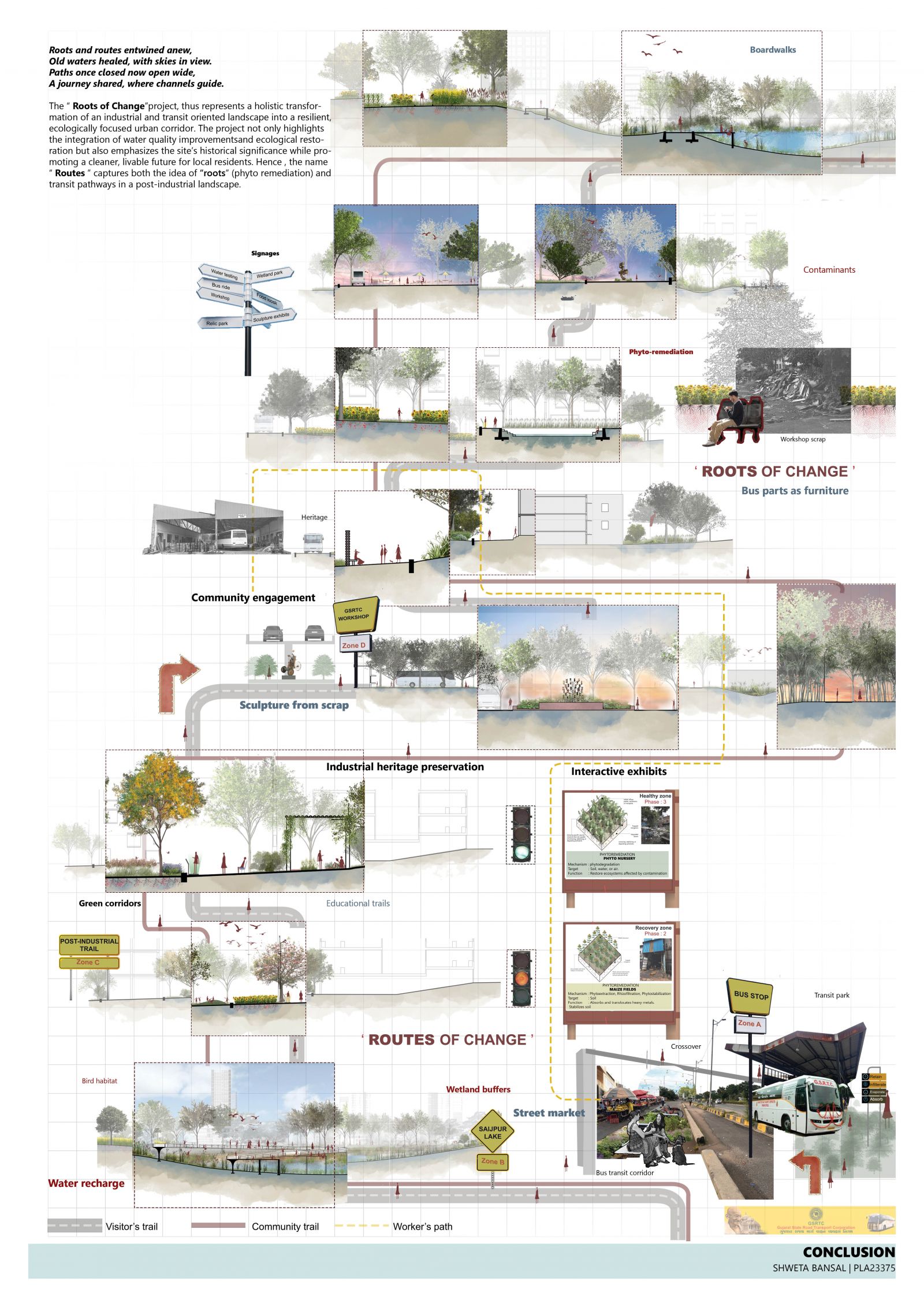Your browser is out-of-date!
For a richer surfing experience on our website, please update your browser. Update my browser now!
For a richer surfing experience on our website, please update your browser. Update my browser now!
The “Roots of Change” project represents the transformation of an industrial, transit-oriented landscape into a resilient, ecologically focused urban corridor. The project aims to decontaminate polluted land and water while establishing a self-sustaining system of upkeep through nature-based solutions and community involvement. Through phased phytoremediation and cleanup, it revitalizes Saijpur Lake and its surroundings as key ecological assets for the community. The project seamlessly integrates urban landscape design by curating a journey through all zones of the site, guiding visitors from the bustling transit hub to serene, ecologically restored areas, fostering both exploration and learning. Each area tells a part of the site’s story, transitioning from industrial roots to a sustainable, community-centric landscape. Hence, the project not only highlights the integration of water quality improvements and ecological restoration but also emphasizes the site’s historical significance while promoting a cleaner, livable future for local residents. Hence, the name "Routes" captures both the idea of “roots” (phytoremediation) and transit pathways in a post-industrial landscape.
View Additional Work